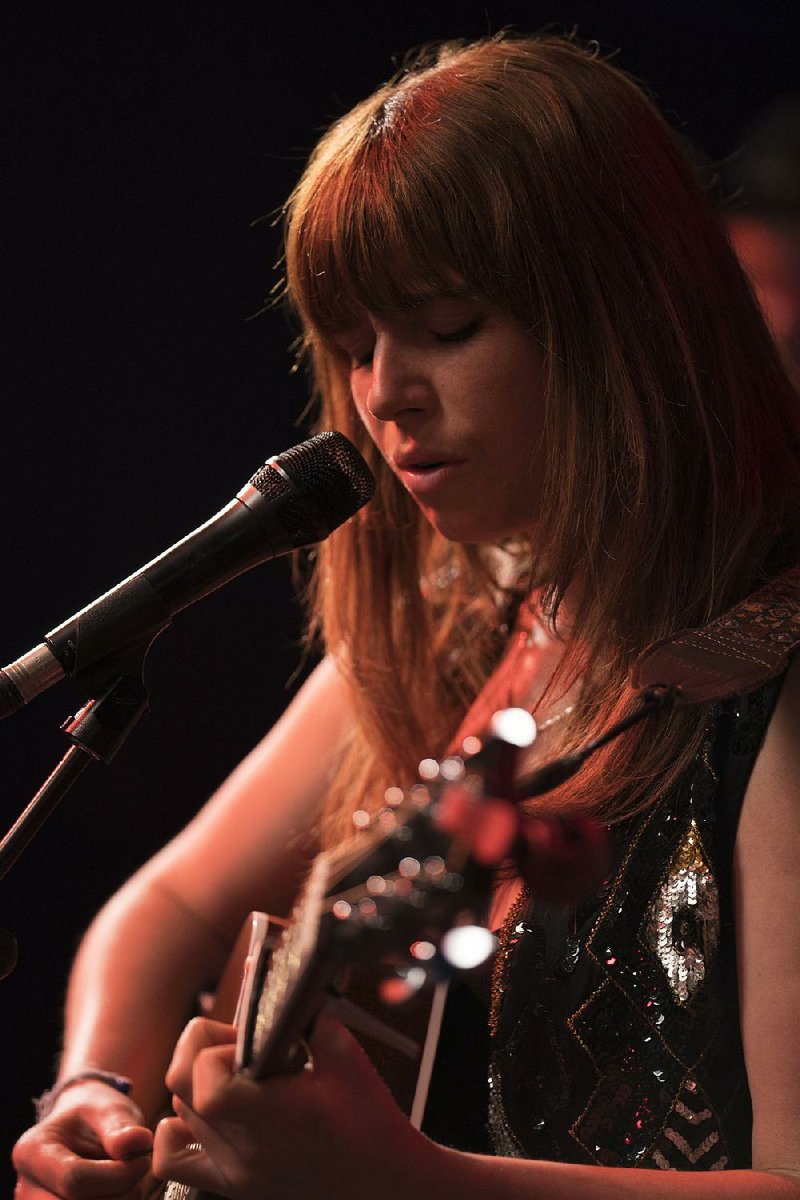Like a good country or blues song, Wild Rose sounds familiar and heartfelt. Legions of musicians have struggled to earn a living off their voices, but it's still rewarding to discover someone with both the chops and the drive to do it.
Sadly, opportunities come like chicken's teeth regardless of whether you live in Nashville or Glasgow. Rose-Lynn (Irish actress Jessie Buckley from Chernobyl) certainly has a magical set of lungs, but it's hard to get to the Ryman Auditorium when you've got an ankle monitor hidden under your cowboy boots.
Wild Rose
85 Cast: Jessie Buckley, Julie Walters, Sophie Okonedo, Adam Mitchell, Daisy Littlefield, James Harkness, Craig Parkinson, Jamie Sives
Director: Tom Harper
Rating: R, for language throughout, some sexuality and brief drug material
Running time: 1 hour, 41 minutes
In addition to her scrapes with the law, Rose-Lynn's got two youngsters (Adam Mitchell, Daisy Littlefield) who've rarely seen their mum as well as an understandably frustrated mother who'd like Rose-Lynn to finally meet her obligations.
Rose-Lynn's chances at getting past cleaning houses seems like a pipe dream, but her white collar employer (Sophie Okonedo) starts taking a liking to the Nashville sound once Rose-Lynn delivers it. She may not be willing to bankroll the aspiring singer's career, but she supports that no one else in Glasgow seems willing to offer.
Thanks to Buckley's resonant and crisp delivery, the dream doesn't seem as impractical as it normally would. She can wail Patsy Cline tunes with remarkable authority and then effortlessly switch back to a believable Glaswegian brogue.
Director Tom Harper and screenwriter Nicole Taylor have Rose-Lynn simply walking up to bands and fronting them as if she has performed with them on long tours. Because she doesn't back herself up on a guitar or autoharp, wouldn't it help to figure out what keys she performs songs in before beginning to play?
What keeps these sequences from degenerating into shallow fantasy is that Buckley's singing sounds good even when she's performing unaccompanied. (Some of the players in the background sound just a little off, adding to the verisimilitude.)
More importantly, Buckley achieves an intriguing balance between naivete and an almost subconscious sense that even people who live in Tennessee aren't likely to make a living out of music. Rose-Lynn's parenting is scattershot, but it's almost as if she has been denied a childhood of her own. Being a teenage mother derails a lot of dreams, and the father of her offspring seems to have disappeared from the planet.
The redoubtable Walters manages to be hard-nosed without being hard-hearted. As irritated as she is with Rose-Lynn's casual attitude about motherly duties, Walters' glances indicate she still wants a future for her daughter that has somehow been stolen from her.
To her credit, Taylor comes up with credible obstacles and opportunities for Rose-Lynn's path. Being on the road may be the singer's long-term goal, but traveling almost guarantees missed appointments and big breaks that are merely broken.
Taylor correctly figures that viewers might not trust a Hollywood ending, but much of what makes great country tunes worth hearing is the way they can use sweet melodies to carry difficult emotions. Living in Scotland certainly fills one with both, which might explain why Nashville doesn't have a monopoly on great music.
MovieStyle on 07/19/2019

